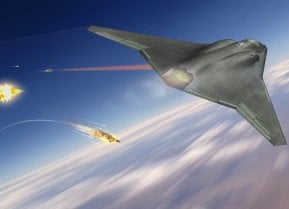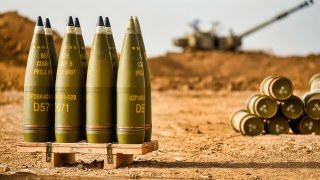Kursk Offensive: Examining the Kremlin’s Mindset
A seemingly cold strategic correlation of forces calculations is in play. Having failed in indirect, asymmetric actions, the Russian armed forces now rely on relative advantage in mass and time. As the Ukrainian forces are slowly chipped away on the front, Russia believes that missile and drone terror strikes against Ukraine’s energy infrastructure, and other civilian targets, will degrade Ukraine’s rear.
The significance of the Ukrainian offensive in the Kursk region of Russia should be seen against the larger strategic context. It is not a one-off triumph or a tragedy, but a litmus test of the key assumptions about this war, both in Russia and in the West.
The Kremlin believes in the war of attrition, an indefinite and creeping offensive throughout eastern Ukraine, coupled with the destruction of critical infrastructure across Ukraine and brutal occupation of the territories already seized. These actions aim to deplete Ukraine’s military, economic, and societal resources, making it impossible for Ukraine to continue fighting. The Kremlin also believes that it will outlast the West on the political-strategic front. As noted by the Institute for the Study of War (ISW) back in June, “Putin’s theory of victory hinges on the critical assumption that the West will abandon Ukraine,” and consequently, Russia may conclude peace on terms beneficial for it, with more land than it had before the invasion.
On the military-strategic front, Russia is exchanging men and materials for time, which it thinks is on its side. With continuous low-scale assaults, the Russian armed forces try to degrade Ukraine’s military capabilities and prevent it from constituting new operational forces. Russia tries to deny Ukrainian efforts to gain initiative or advantage on the battlefield by using the minimum resources necessary. A certain level of casualties and damages to, for example, energy infrastructure, and even loss of Russian land is acceptable to the Kremlin if that makes Ukrainian efforts seem ineffective and pointless, at least in the eyes of Ukraine’s allies and, less importantly, Russian citizens.
A seemingly cold strategic correlation of forces calculations is in play. Having failed in indirect, asymmetric actions, the Russian armed forces now rely on relative advantage in mass and time. As the Ukrainian forces are slowly chipped away on the front, Russia believes that missile and drone terror strikes against Ukraine’s energy infrastructure, and other civilian targets, will degrade Ukraine’s rear.
Russian military leadership seems to think that the war will be decided in the mind of the opponent. This logic is something that Ukraine’s Kursk operation is trying to turn around via missile strikes against military targets in Crimea and drone strikes against Russia’s oil refineries. Only by denying the stronger opponent’s freedom of action and control of domains, including information, and disorganizing its plans, command, and force generation can the weaker party in a war stay relevant in a protracted conflict.
When it comes to the political-strategic front, Russia’s hopes are vested in its ability to confuse the political leaders of the Western countries about its political-strategic intentions, and to manipulate concepts with which we describe as Russia’s goals, fears, and constraints. For example, Russia has downplayed the scale of invasion by calling it a "special military operation", while on the other hand, has manipulated fears of escalation with its nuclear signaling.
Most importantly, Russia has attributed false intentions and objectives to other countries, creating a perception that Russia is drawn into a conflict, and forced to react to external aggression. Parallel with this messaging, the war is framed as a mission to save Russian state civilization and thus, acquires eschatological elements, whereby Russia is portrayed as a savior bringing Ukraine back to its “historical roots”.
The fact that Russia’s strategic disinformation narratives are inconsistent, even contradictory, is not a reason to dismiss their importance as sources of information about Russia’s war aims. Instead, the Western decision-makers should recognize how the Kremlin plays with these contradictions by representing the “gathering of the Russian world” as a natural process and resistance to it as something abnormal.
With the Kursk operation Ukraine can illuminate the hollowness of Russia’s strategic deception narratives and with that enhance Ukraine’s ability to create a peace that is acceptable for Ukraine.
Associate professor Katri Pynnöniemi holds the Mannerheim Chair of Russian Security Studies at the University of Helsinki and the Finnish National Defense University. Pynnöniemi has published widely on the system change in Russia and on Russian foreign and security policy. Her current research deals with Russian strategy, in particular strategic deception and conceptualization of threats towards Russia.
About the Author:
Katri Pynnöniemi holds Mannerheim Chair of Russian Security Studies at the University of Helsinki and the Finnish National Defense University. Pynnöniemi has published widely on the system change in Russia and on Russian foreign and security policy. Her current research deals with Russian strategy, in particular strategic deception and conceptualization of threats towards Russia.
Major Juha Kukkola is an associate professor at the Finnish National Defence University. He serves in the Russia Research Group and specializes in Russian military strategy, indirect warfare, and future art of war.
Image Credit: Creative Commons and/or Shutterstock.


